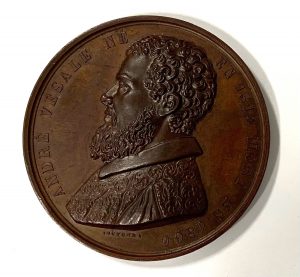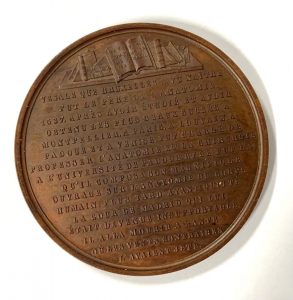
Associate Vice Chancellor for the Health Sciences Library System
rbarger@pitt.edu
Barbara Epstein announced her retirement as HSLS Director in last month’s issue of the HSLS Update. It is my privilege to call Barbara my friend, colleague, and mentor. As I begin my appointment as Associate Vice Chancellor for the Health Sciences Library System, I am grateful for the opportunity to have learned from her example. Her leadership has made a lasting impact on our profession, on HSLS as a leading academic health sciences library, and on me, both personally and professionally.
I am a proud Pitt alumnus, earning a BS from the School of Health and Rehabilitation Sciences, MLIS from the School of Information Sciences, and Masters Certificate from the Department of Biomedical Informatics. I began my career at HSLS in 2002, starting as a trainee in the Library and Biomedical Informatics Trainee Program and continuing as Reference Librarian and Coordinator for Document Delivery Services. I then advanced to Head of Access Services and Assistant Director for Access Services. From 2011 to 2021, I served as Executive Director and then Program Lead for the Network of the National Library of Medicine, Middle Atlantic Region, building a highly regarded program that was recognized regionally and nationally for innovative health information outreach. Continue reading

 Have you ever looked at the
Have you ever looked at the  Medals, unlike coins, or at times tokens, are not monetary instruments. They are frequently used to commemorate people, events, or things. As a perfect medium, and due to their permanence, they pass along information about past events and man’s achievements to future generations.
Medals, unlike coins, or at times tokens, are not monetary instruments. They are frequently used to commemorate people, events, or things. As a perfect medium, and due to their permanence, they pass along information about past events and man’s achievements to future generations.